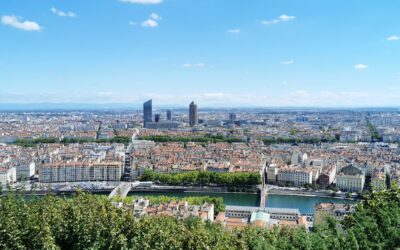UK Power Networks launches ’Heat Street’ study to accelerate UK communities' transition to a low carbon energy system. First councils in Wales receive HNIP funding towards heat networks construction. The French Prime Minister announces 'France relance' recovery package, of which €30 billion will be dedicated to ecological transition over the next two years. Read more about highlights from the summer and current developments in the UK and France here.

The energy distribution operator has launched the project with the aim of identifying which types of low carbon heating technologies are best suited in different areas of London, South and South East England. Reviewed technologies will include heat networks, heat pumps, installing cavity wall insulation or combinations of them all. The project will support communities to better plan their transition to decarbonised heating systems, and will involve local stakeholders such as councils, businesses and property developers.
Read more in article by Business Green>
Read more at UK Power Networks website>
The councils of Cardiff and Bridgend have received roughly £8 million in grant funding from the Heat Networks Investment Project (HNIP) for commercialisation and construction of heat networks schemes. In Bridgend, the new heat network will supply a number of public sector buildings with heat, with the possibility of connecting residential units and businesses in the future. The Cardiff heat network will source its heat from a local Energy from Waste plant, and will initially be delivered to 11 commercial and public sector buildings with the ability to expand the network in the future.
Read more in article by the ADE>
The Peterborough Integrated Renewables Infrastructure project (PIRI) is a council-led scheme aimed at connecting waste-to-energy, heat networks, battery storage and electric vehicles to form a linked, smart energy system. Funded by the private sector and UK Research and Innovation, the project is estimated to cut energy costs by 25% while significantly reducing CO2 emissions. It is expected to constitute the largest urban low carbon energy system in the UK by the time of the project’s completion in 2022.
Read more in article by Business Green>
In a report backed by 13 cross-party politicians, think tank Policy Connect argues that burning 80% of non-recyclable waste in the UK could heat half a million homes and reduce carbon emissions by four million tonnes over the next 10 years. The report stresses the need of shifting policy to a more Scandinavian approach, which includes reducing the amount of non-recyclable waste that is shipped abroad or going to landfills while investing in energy-from-waste infrastructure.
Read more in article by Energy Live News>
Read the full report from Policy Connect>
Energy giant Engie recently committed to accelerating its development of renewable energies. Driven by client demand and financial support from the state, Engie’s medium-term annual renewable capacity target has been raised from 3 to 4 GW. The group intends to not only increase renewable energy production, but also grow within urban heating and cooling networks, electric vehicles and decentralised infrastructure.
Read more in article by DHC News>
Read more in article by Environnement Magazine>
On September 3rd, the French Prime Minister Jean Castex presented a package of €30 billion dedicated to the ecological transition, as part of the €100 billion plan France relance. The ambition of France relance is to support the economy in reaching the same level of prosperity as before the crisis – already by 2022. Out of the €30 billion dedicated to the ecological transition, €11 billion has been allocated to the transport sector, €9 billion to the energy industry, €7,5 billion to increasing efficiency in housing and buildings, and €1,2 billion to the agricultural sector.
Read more in article by Actu Environnement>
In the Olympic Games taking place in Paris 2024, the Olympic village will be heated and cooled through the extension of the SMIREC heating and cooling network. The network will mainly be powered by geothermal energy (68%), making the energy provision both locally and renewably sourced. Plaine Commune Energie, a subsidiary of ENGIE Solutions, will manage the network.
Read more in article by Enerzine>
To stay updated on news for sustainable heating and cooling, follow us on Twitter and LinkedIn, and subscribe to our Newsletter.
Sweden is at the forefront of decentralised heat networks technology. Our aim for “Sustainable Heating & Cooling by Sweden” is to facilitate knowledge sharing between British, French and Swedish stakeholders and develop and encourage environmental and economic best practice.
To find out how we can help you and your organisation, please contact our London or Paris-based “SHC” teams. We can introduce you to leading consultants, suppliers of technology and services who will be pleased to share know-how of the development of sustainable heating & cooling solutions.


